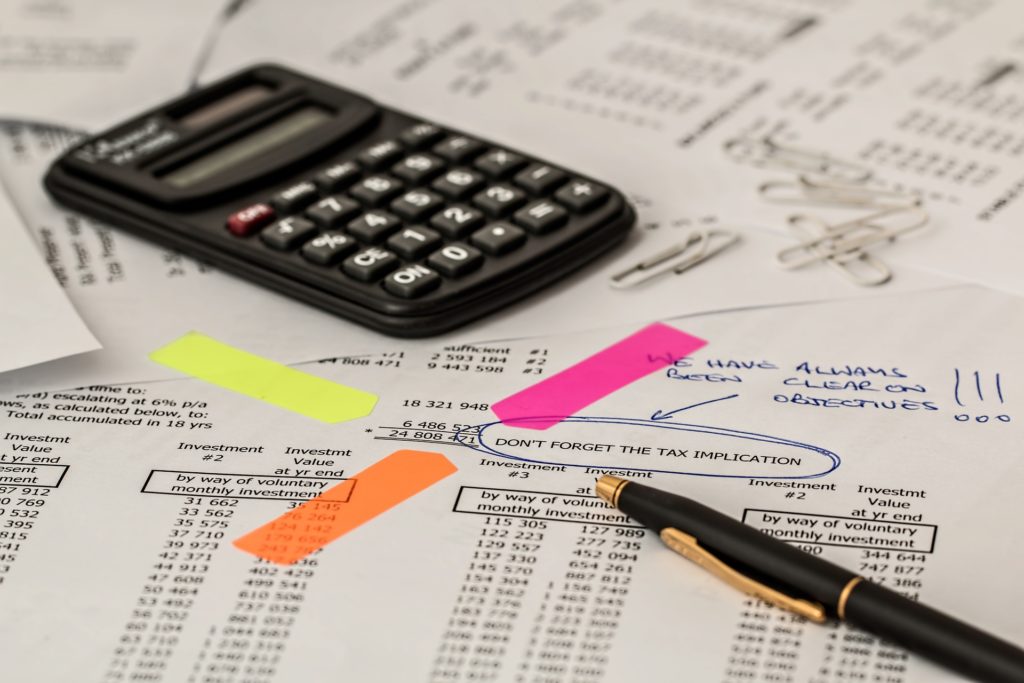
Choosing a professional bookkeeping service means that your employees won’t have to focus on the financial nitty-gritty of the company. Instead, they will be able to dedicate their time to more constructive tasks, such as finding ways to constantly improve their services.
Bookkeeping is essential to helping your business grow and is necessary even if you already have an accountant.
Aren’t accountant and bookkeeper one and the same? Nope. These are very distinct roles with their own types of responsibilities. Bookkeepers are only responsible for keeping a clean record of all its financial transactions while accountants use these records to prepare financial accounts.
Entrusting your finances to a reputable bookkeeping service guarantees that your company is complying with state and federal laws and tax regulations. Proper bookkeeping management will also allow you to fully understand your business operations and ensures you make wise financial decisions.
How Do I Find the Right Business Bookkeeper?
1. Find a Bookkeeper that Has the Right Skills

While a bookkeeper does not need a state-issued license (unlike accountants), they still need to have some level of training. Bookkeepers in Australia need to have the following to become certified bookkeepers:
- Complete a certificate IV or higher in bookkeeping or accounting
- Possess at least 1,400 hours of bookkeeping
- Be registered as a BAS agent
2. Find a Bookkeeper Who Is Experienced
Regardless of whether you choose to hire an independent bookkeeper or contract a firm, find one that has extensive experience. Conduct interviews if necessary and do not shy away from asking bookkeeping prospects in-depth questions about their career path and the accounting software they use. This will help you avoid hiring the wrong candidate.
3. Find a Bookkeeper Who Regularly Updates Their Knowledge

Technology and tax and business regulations are constantly evolving. You do not want to work with a bookkeeping firm that has not stayed up to date with accounting news and technology. To ensure the firm you want to contract has stayed abreast of evolving tax and business regulations, ensure that they are continuously upgrading their skills, business services, and technological.
4. Find a Bookkeeper Who Wants to Build Their Business
If the bookkeeper has the ambition of growing his or her business, he/she will ensure that they offer only the highest level of service to their clients. A leader understands that the better their clients do, the better will their business do in turn.
5. Find a Bookkeeper You Can Trust
On top of qualifications and good references, you need to find a bookkeeper who is honest, transparent and highly ethical. You want to make sure that they would be easy to reach. We do not mean that they have to make themselves available to you at the drop of a hat – they have a business to run too. But they should be available should you need any clarification.
6. Find a Bookkeeper Who Is Reliable
When we say reliable, we mean a bookkeeper who has a track record of excellence – they need to be able to meet deadlines consistently, be efficient and respect each client’s confidentiality. It goes without saying that if they offer high-quality service to their existing clients, they will do the same for you. You might want to look for companies that have a long-standing presence, as this is a testimony of the level of their work.
7. Find a Bookkeeper Who Is Well-Informed
If you look at the technological aspect, this means bookkeepers who are familiar with the accounting software your business uses. When it comes to the financial aspect, on the other hand, you want a bookkeeper who can provide real-time financial reporting and offer insight into your financial progress.
8. Find a Bookkeeper Who Is Organized and Has Good Communication Skills
While you do want someone who is good with numbers, is fundamentally organized and detail-oriented, you also want someone who can communicate well. Being adept at dealing with only one of these thing may be a red flag. Remember that the bookkeeper will have to listen well and explain reporting and retrieval of financial data clearly to you- especially if you are not an expert in the field.
9. Find a Bookkeeper Who Understands Your Industry
Remember how we said you needed a bookkeeper with experience? Well, if the bookkeeper has an in-depth knowledge of the industry you are in, it’s even better.
It might even be preferable to hire someone with only two years of industry-specific experience rather than someone with 10 years of general bookkeeping experience.
10. Find a Bookkeeper Who Prioritizes His Clients
What does this mean? It means that the bookkeeper or the firm is proactive, respects your time, and tries to understand your objectives. The firm should also be willing to continually upgrade so that their clients remain at the forefront of their respective industries, and ahead of the competition.
